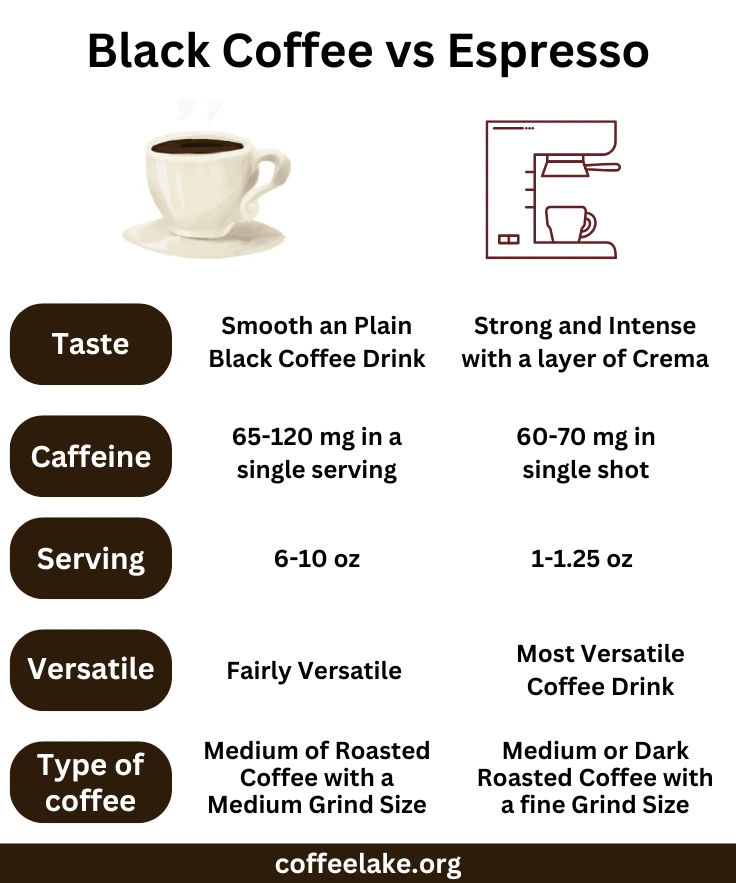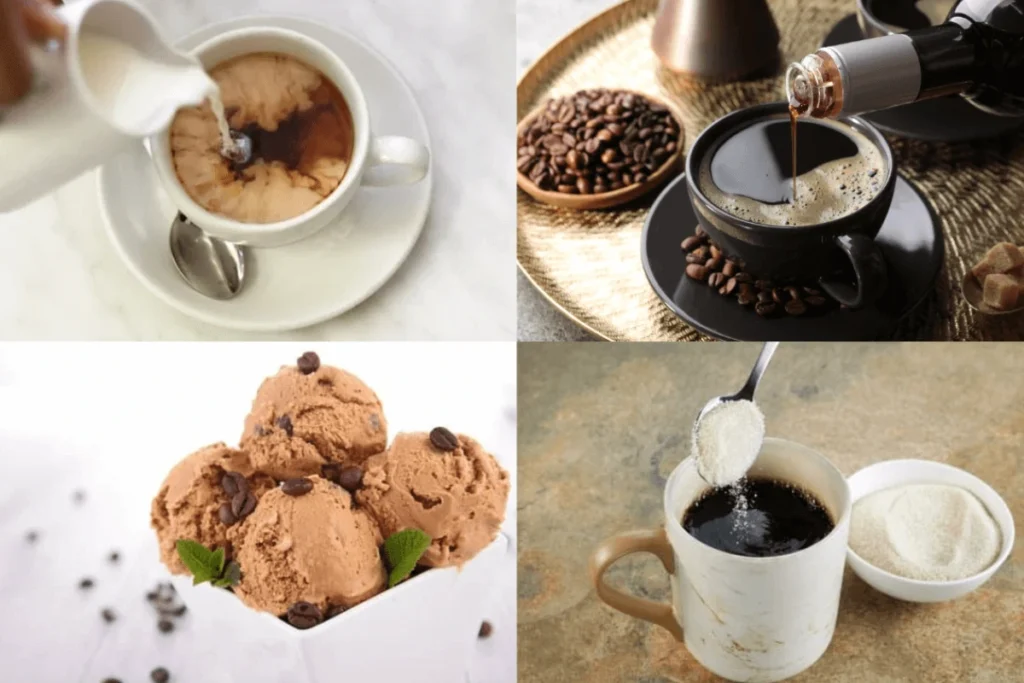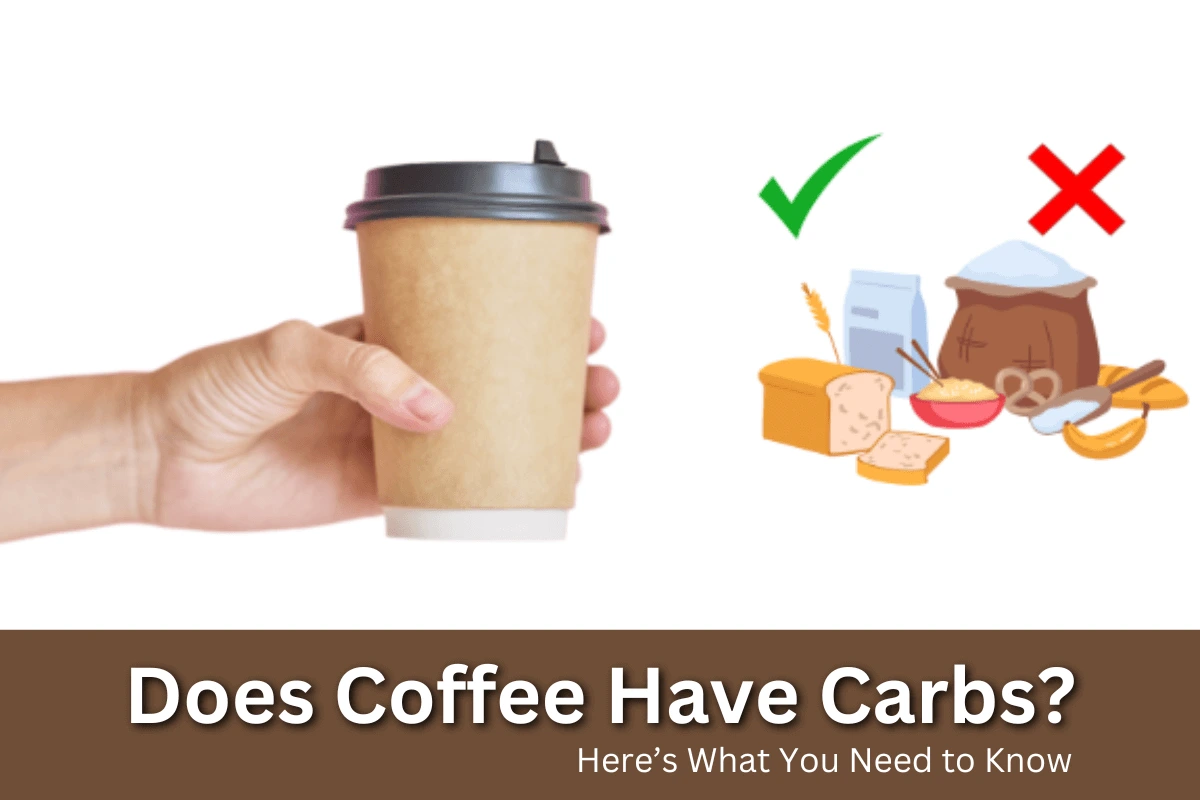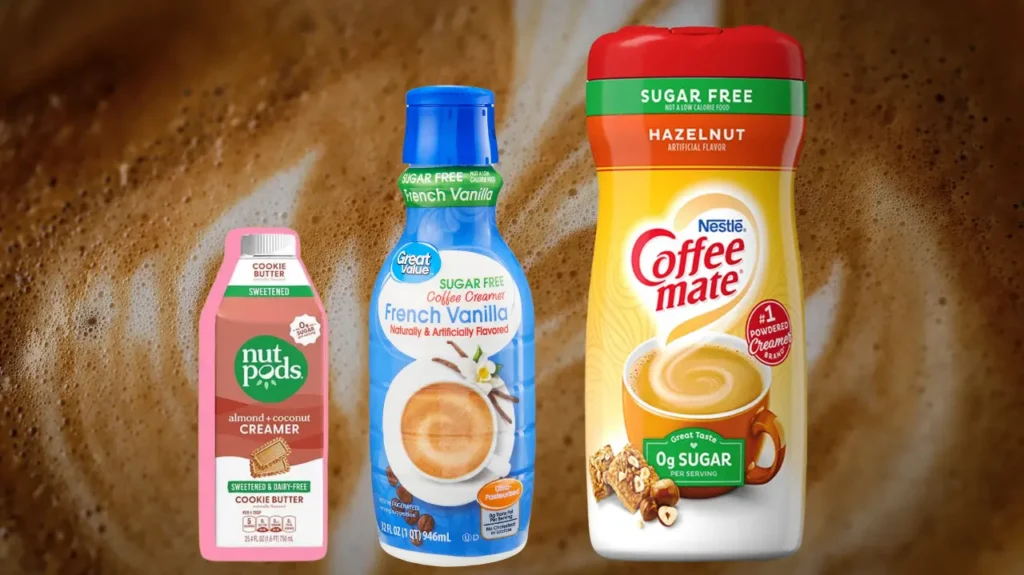Counting carbs, but can’t skip your morning coffee? You’re not the only one. Half of coffee drinkers toss and turn over whether their daily cup matches their diet.
Here’s the relief: black coffee won’t wreck your low-carb plans. But, yes, there’s a problem: your coffee order could hide a carb bomb.
Some drinks? Nearly carb-free. Others? They’ll hit harder than a glazed doughnut. The difference? What you pour into your cup.
Let’s strip away the myths and answer exactly what you’re here for: Does coffee have carbs? Spoiler: It’s not the coffee; it’s the extras.
Black Coffee and Espresso: The Carb Count Truth
Coffee beans aren’t carb-free. Raw? They’re half carbs. But here’s the kicker: roasting torches those carbs into oblivion.

Think of it like burning off sugar in a flame; what’s left won’t hurt your diet. A cup of black coffee? Less than 1 gram of carbs.
Espresso?
A mere 0.5 grams per shot. You’d need 20 shots to hit 10 grams. Good luck staying awake for that.
Why such tiny numbers? Coffee’s magic happens when hot water steals flavour, not carbs. Espresso machines blast beans with pressure, and cold brew soaks them for hours.
Both methods grab caffeine and oils but leave carbs behind. Even the darkest roast won’t change this.
You might think cold brew’s long steep time equals more carbs. Nope. Carbs in beans are like a locked treasure; water can’t crack them open.
Drip, French press, and pour-over play the same carb-free game.Your brewing method is about taste, not carbs.
Those carbs stay ghost-level low whether you sip espresso like an Italian nonna or guzzle black coffee from a gas station mug.
Common additions that add carbs (milk, syrups, cream)
You pour black coffee, innocent, nearly carb-free. Then comes the “just a little” milk. The “one pump” of syrup.

The “harmless” whipped cream. Suddenly, your zero-carb hero becomes a carb villain. Let’s expose the troublemakers.
Dairy milk is the ultimate double agent. It looks innocent, but one cup = 12g carbs. Your latte? That’s *8-12 ounces* of milk.
Do the math: a grande latte = 18g carbs, like eating two slices of bread through a straw.
Flavored syrups are liquid candy. One pump = 24g carbs. A standard vanilla latte gets 2-4 pumps. Add the milk, and you’re sipping 50g carbs, more than a Snickers bar.
Even “natural” sweeteners like honey? 5g carbs per teaspoon. Three spoons = 15g carbs. Ouch.
Whipped cream’s dirty secret? Coffee shops spike theirs with sugar. One swirl = 3g carbs. But make it at home with plain heavy cream?
2 tablespoons = 0.8g carbs. Translation: You could top 10 coffees at home for the carbs in one café whip.
Coffee Shop Drinks: Carb Showdown (16oz)
| Drink | Carbs (g) |
| Black Coffee | <1 |
| Americano | <1 |
| Cappuccino | 12 |
| Latte | 18 |
| Mocha | 44 |
| Frappuccino | 66 |
See the spike? A cappuccino’s milk foam = 12g carbs (like a banana). Lattes? Milk-heavy = 18g (a granola bar). Mochas?
Chocolate syrup rockets it to 44g, the same as a slice of cheesecake. Frappuccinos? A whopping 66g carbs, more than a Big Mac bun.
How to Outsmart the System
Swap milk for heavy cream (0.4g carbs/tbsp). Try almond milk (1g/cup). Use sugar-free syrups; they exist, and they’re not tragic.
Stevia or monk fruit add sweetness without betrayal.
Barista hack: Order a “breve” latte (made with heavy cream). It has half the carbs and double the richness. Your taste buds won’t know you’re dieting.
Remember: Coffee isn’t the problem. It’s the extras you invite into your cup. Choose your guests wisely.
Popular coffee drinks and their carb counts
Your barista’s questions aren’t small talk; they’re carb-critical. Let’s decode the hidden carb drama in your go-to orders.
The Latte Trap
A 16-ounce latte? It’s a milk avalanche. Steamed milk dominates the drink, landing 18 grams of carbs, equivalent to eating a small banana.

Add vanilla syrup (a sneaky 24g per pump), and you’re sipping 44 grams, more carbs than a glazed doughnut.
Cappuccino’s Foam Illusion
Cappuccinos trick you with their fluffy foam. A traditional 16-ounce version has 12 grams of carbs, thanks to less milk.
But modern cafés often skimp on foam, loading extra milk. Suddenly, your “light” cappuccino morphs into latte territory.
Frappuccino: The Carb Tsunami
That icy Frappuccino? A grande mocha version has 66 grams of carbs, which is equivalent to blending four slices of white bread into your drink.
The culprits are the syrup, milk, and whipped cream trifecta. It’s dessert masquerading as coffee.
Americano: The Stealth Hero
Order an Americano, and you’re safe. It’s just espresso and hot water, zero carbs. Add a splash of cream? It’s still under 2 grams.
It’s the James Bond of low-carb coffee: sleek, simple, and gets the job done.
Flat White’s Milk Math
Flat whites look like lattes but play a different game. They use whole milk and less volume, cutting carbs to 13 grams for a 16-ounce cup.
Still hefty, they are better than their milk-heavy cousins.
Mocha Madness
Chocolate syrup turns a mocha into a carb grenade, 44 grams in a 16-ounce serving. Add whipped cream, and you’re flirting with 50 grams.
It’s a liquid candy bar with a caffeine kick.
Why Milk Matters
Dairy milk is the silent saboteur. One cup packs 12 grams of carbs, so a latte’s 8-ounce milk dose alone accounts for nearly 18 grams.
Plant-based milk like almond (1g/cup) or coconut (2g/cup) slash those numbers.
Syrups: The Sweet Betrayal
Flavored syrups are liquid sugar. One pump = 24 grams of carbs. A “light” caramel drizzle? Still 15 grams.
Sugar-free versions exist but watch for sneaky additives like maltitol, which can spike blood sugar.
The Whipped Cream Paradox
Coffee shop whipped cream adds 3 grams of carbs per dollop. DIY at home with heavy cream? Less than 1 gram. The lesson?
Skip the café whip unless you’re okay with trading carbs for fluff.
Cold Brew’s Sneaky Edge
While not on your list, cold brew deserves a nod. Its long steeping pulls slightly more natural sugars from beans, adding 2-3 grams of carbs per cup, still a win compared to syrup-laden drinks.
Simple tips for keeping coffee low-carb
Your coffee order isn’t set in stone; it’s a playground for carb-cutting. Let’s rewrite the rules without sacrificing flavour.
Milk Swaps That Don’t Suck
Ditch dairy milk; it’s carb city. Heavy cream is your new best friend. A splash gives that velvety texture for under 1 gram of carbs. Can’t do cream?
Almond milk whispers in at 1 gram per cup. Pro move: Order a “breve” latte (made with cream) for a luxe, low-carb treat.
Size Down, Flavor Up
That 16-ounce cup? It’s a carb trap. Drop to 12 ounces and save 6-8 grams instantly. Think of it as trimming the “carb fluff” while keeping the good stuff.
Bonus: Smaller cups force cafés to use less syrup, sneaky savings.
The Magic Words
Learn the barista code. “Light milk” halves the carbs in lattes. “Half-sweet” slashes syrup carbs by 50%. “No whip” saves 3 grams instantly.
These phrases are like cheat codes for your coffee order.
Timing is Everything
Craving a mocha with whipped cream? Schedule it post-workout. Your muscles guzzle carbs faster than, turning that indulgence into fuel.
Pair it with protein, like a handful of almonds, to blunt the blood sugar spike.
Embrace the Basics
Sometimes, simpler is better. An Americano with heavy cream and sugar-free vanilla has under 2 grams of carbs and tastes like dessert.
Cold brew with a cinnamon sprinkle has zero carbs and a maximum vibe.
Syrup Sleuthing
Sugar-free syrups aren’t perfect, but they’re damage control. Brands like Torani use sucralose, zero carbs, and zero guilt.
Avoid “skinny” syrups with maltodextrin; they’re wolves in sheep’s clothing.
The Creamier Secret
Blend your coffee. Seriously. Mix hot coffee, ice, heavy cream, and sugar-free caramel in a blender: boom, Frappuccino vibes under 3 grams of carbs. Starbucks can’t compete.
Plan Your SplurgesTrack your carbs like cash. If you need a 44-gram mocha, skip the morning yoghurt. Balance the day’s “carb budget” around your coffee craving.
Conclusion
Here’s the wake-up call: Coffee isn’t your diet’s enemy. It’s the milky, syrupy entourage you invite into your cup that flips the script. Black coffee?
It’s still the MVP, with near-zero carbs and full-throttle flavour.
But let’s get real: Life’s too short for boring coffee. The magic lies in smart swaps: heavy cream instead of milk, sugar-free syrup over liquid candy, and a smaller cup that satisfies without the carb hangover.
You’ve now got the playbook:
- Espresso drinks = low-carb canvas
- Milk swaps = carb savings
- Syrup hacks = flavour without betrayal
Order that mocha after a workout. Sip a latte with half the milk. Crave sweetness? Stevia to the rescue.Your coffee ritual isn’t just alive; it’s thriving.
Because knowledge isn’t power; using it is. So brew boldly, order wisely, and let your low-carb life hum to the sound of your coffee grinder.
FAQ: Does coffee have carbs
Will black coffee wreck my keto streak?
Nope. Black coffee is practically carb-free, with under 1 gram per cup. Research shows caffeine might boost ketone production. Some keto veterans swear their morning brew gives them better ketone readings. Your espresso shot? Still safe.
How long after a milky coffee should I test ketones?
Milk’s carbs need time to crash the party. Wait 2-3 hours post-sip for accurate testing. Pro tip: Test ketones before your morning coffee for baseline numbers. Morning breath? It’s worth it for data.
Is decaf a carb traitor?
Decaf coffee is just regular coffee with the caffeine stripped out. Carbs? They’re the same deal, under 1 gram per cup. They’re like identical twins, except one can’t keep you awake through meetings.
Do sugar-free creamers play dirty?
Some do. That “sugar-free” label might hide maltodextrin, a sneaky carb that spikes blood sugar like regular sugar. Always check the ingredients. If it says “corn syrup solids” or “maltodextrin,” ditch it. Heavy cream or almond milk won’t betray you.




![Does Coffee Cause Cavities? [Dentist-Approved Guide] does coffee cause cavities](https://coffeelake.org/wp-content/uploads/2025/04/does-coffee-cause-cavities-1024x575.webp)